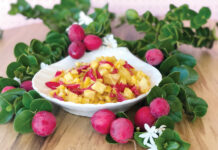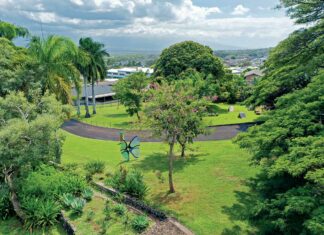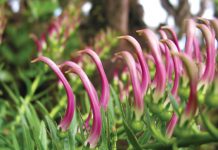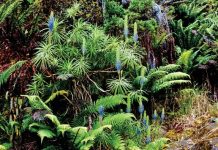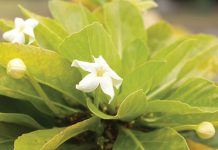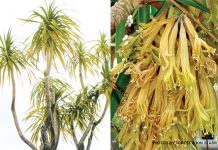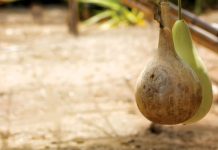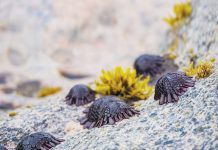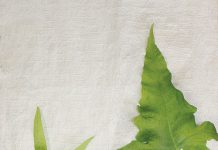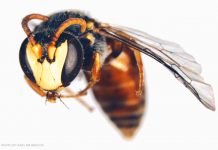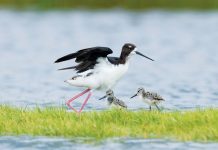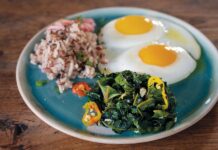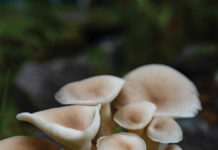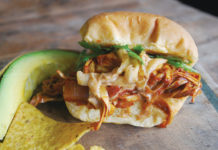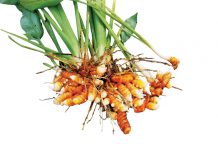Story by Shannon Wianecki | Photograph by Jean Coté from Nā Lei Makamae by McDonald & Weissich (© 2003 University of Hawai‘i Press)
 Need help sticking to your New Year’s resolutions? Take inspiration from the ‘a‘ali‘i, an attractive native Hawaiian shrub well known for its steadfastness.
Need help sticking to your New Year’s resolutions? Take inspiration from the ‘a‘ali‘i, an attractive native Hawaiian shrub well known for its steadfastness.
‘A‘ali‘i or Dodonaea viscosa is commonly used in landscaping throughout the Hawaiian Islands. In the wild, it’s found on arid, windswept ridges. Dark, shiny green leaves rise from spindly grey-brown branches, sculpted into natural topiaries by the unremitting trade winds. With enough rain, ‘a‘ali‘i can grow into a tallish tree. Historically, the proud people of Ka‘u on the island of Hawai‘i used the native plant to describe their own tenacity: He ‘a‘ali‘i au ‘a‘ohe makani e hina ai. “I am an ‘a‘ali‘ishrub; no wind can push me over.”
Modern conservationists working to restore degraded ecosystems often rely on the ‘a‘ali‘i to jumpstart forest regeneration. The plant’s hardiness, rapid growth, and fecundity allow it to survive the brutal conditions on the uninhabited island of Kaho‘olawe, where past military operations blasted the topsoil away. Beneath the pioneer shrub’s protective shade, other, less robust understory plants can take root. ‘A‘ali‘i was among the first species planted at Auwahi, the dryland forest preserve on leeward Haleakala. Ten years later, those initial plantings are tall enough to walk beneath. They provide habitat for an array of spectacular and rare native insects.
‘A‘ali‘i pairs toughness with beauty. Female plants produce papery, winged seed capsules that range in hue from creamy gold to green and dark maroon. Lei makers prize these organic ornaments and craft eye-catching garlands from variously colored bunches. Ancient Hawaiians additionally steeped the seeds to make a red dye and fashioned the wood into tools, weapons, and house posts.
The humble ‘a‘ali‘i is emblematic of plants indigenous to these islands, which had to adapt to often rough and inhospitable conditions. If you approach your daily challenges in the spirit of the ‘a‘ali‘i,perhaps this ‘olelo no‘eau (proverb) from East Maui may one day apply to you: He iki ‘a‘ali‘i ku makani o Pi‘iholo. “A small, wind-resisting ‘a‘ali‘i bush of Pi‘iholo.” It’s said of a modest but powerful person.

